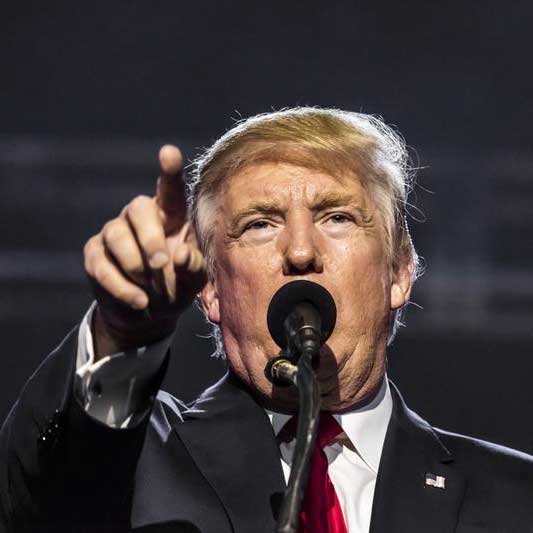President Donald Trump criticized New York Times reporter Maggie Haberman on Friday, March 21, alleging she “owes” him her Pulitzer Prize following her co-authored article about tech billionaire Elon Musk allegedly receiving sensitive military information.
The presidential response was prompted by a New York Times report co-written by Haberman, which claimed Musk, a White House advisor and head of the Department of Government Efficiency (DOGE), was to be briefed on potential U.S. military strategies in the event of a China conflict. The report cited two unnamed U.S. officials.
The president expressed his discontent on Truth Social, labeling the newspaper as “one of the worst and most purposely inaccurate newspapers anywhere in the World.” Trump accused the Times of falsely implying Musk would compromise U.S. interests by sharing sensitive information with Chinese officials due to his business ties in China.
He also targeted CNN for promoting the story, accusing the network of broadcasting a baseless and potentially libelous narrative while ridiculing their audience numbers.
Trump escalated his critique by labeling Haberman as “Maggot Hagerman,” asserting she is a dishonest journalist who invents sources in her reporting about him, and emphasizing he hasn’t communicated with her in years.
Haberman was part of the New York Times team that investigated Trump and his advisors’ connections to Russia, work that earned her a Pulitzer Prize in 2018. Regarding this award, Trump stated: “She lead the Russia, Russia, Russia Hoax, only to realize that she was duped and got it wrong. She owes me a totally discredited Pulitzer Prize for her bad reporting.”
Trump concluded his post with an emphatic statement: “The Fake News is the ENEMY OF THE PEOPLE…And Elon is NOT BEING BRIEFED ON ANYTHING CHINA BY THE DEPARTMENT OF WAR!!!”
Musk responded to the controversy by denouncing the Times report and warned that Pentagon officials who leaked false information to the New York Times would face identification and prosecution. He further described the newspaper as propaganda.
The contentious report suggested Musk would receive highly sensitive information regarding potential military strategies against China. Multiple sources from various news outlets indicated that the initial plan was for Musk to attend a Pentagon briefing on China-related matters, though the briefing’s exact nature became a subject of heated debate.
Trump later expanded on his stance during comments at the White House, stating, “I don’t want to show that to anybody. But certainly, you wouldn’t show it to a businessman who is helping us so much. He’s a great patriot… But I certainly wouldn’t want — you know, Elon has businesses in China, and he would be susceptible perhaps to that.”
The President’s acknowledgment of Musk’s potential conflict of interest regarding China was a rare instance of Trump publicly imposing limits on his advisor’s extensive role in the administration.
Despite the controversy, Musk visited the Pentagon and met with Defense Secretary Pete Hegseth for more than an hour. As he left the building, Musk described the meeting as great and reminded reporters of his previous visits to the Pentagon. He declined to disclose the meeting’s topics.
Hegseth stated that the meeting focused on DOGE initiatives, innovation, and efficiency measures at the Pentagon rather than war planning. He categorically denied to reporters at the White House that any war plans or Chinese war plans were discussed.
The Times report depicted a potential briefing with detailed slides outlining U.S. military strategy for a conflict with China, including threat indicators and potential Chinese targets.
Several defense officials confirmed to various news outlets that plans for Musk to receive some form of China-related briefing existed, but they changed following the Times publication. Instead of meeting in the secure Joint Chiefs conference room known as “the tank,” Musk met with Hegseth in his office.
This controversy underscores ongoing tensions between the Trump administration and major news outlets, particularly The New York Times, as well as the unique role Musk plays as both a businessman with significant foreign interests and a key advisor to the president with apparent access to sensitive government information.
The New York Times has stood by its reporting on the issue.

